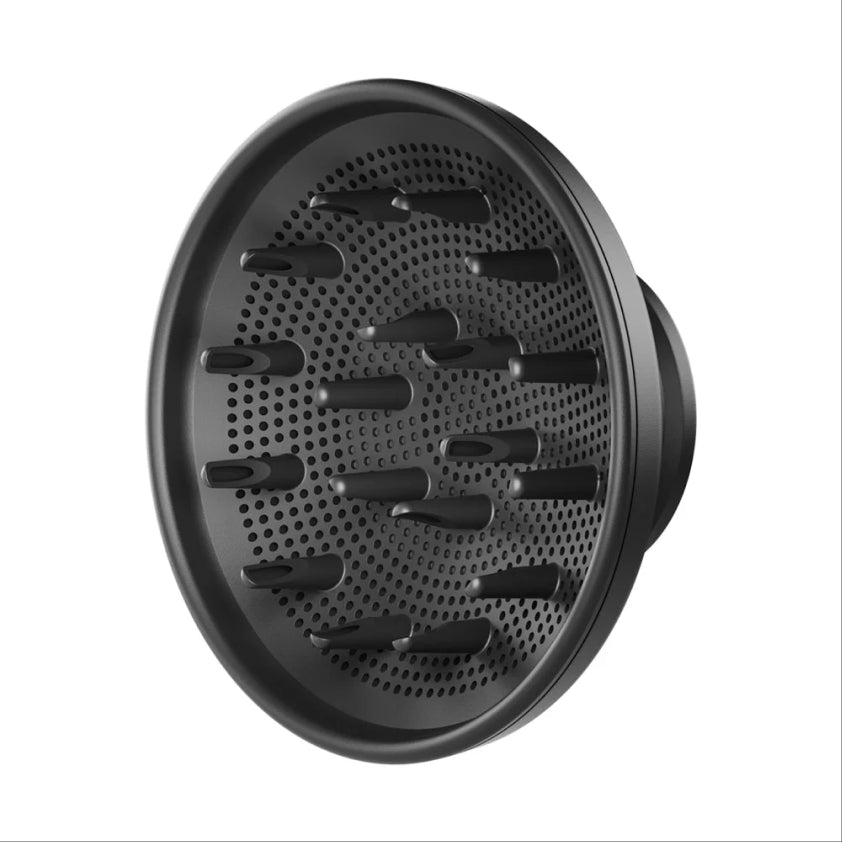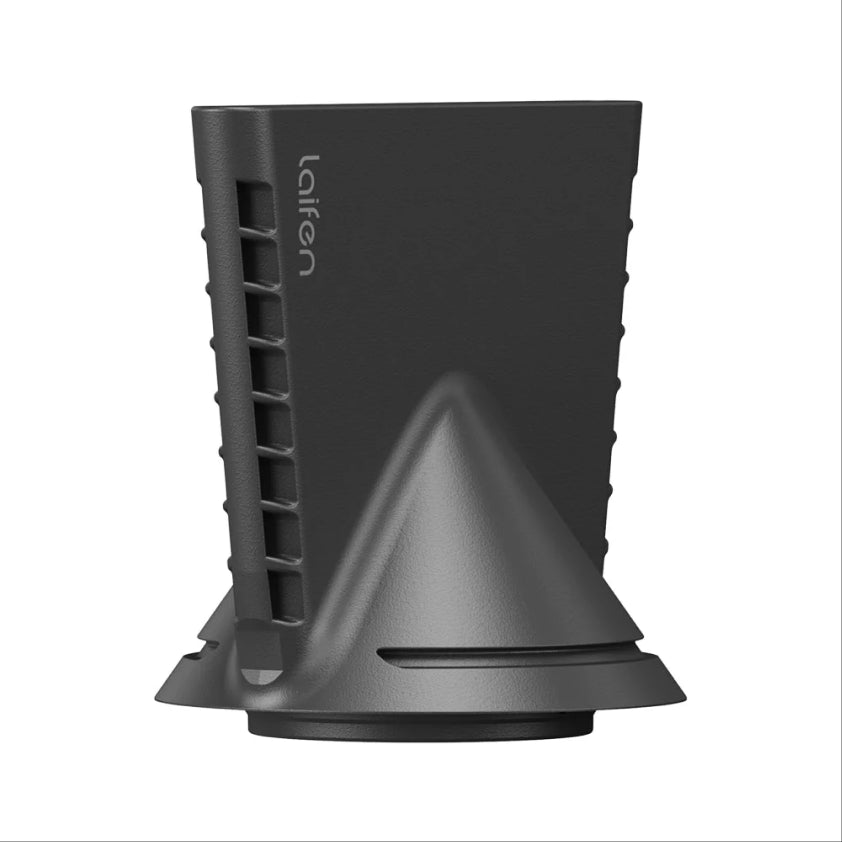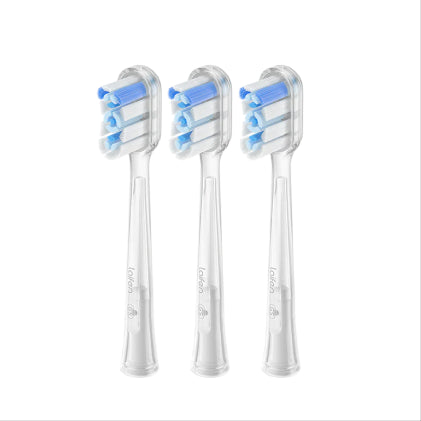
In this article
Women are particularly sensitive to hair loss, and the causes of female hair loss are numerous. Many women ask themselves: "What should I do about hair loss?" The answer is not always straightforward, as the reasons can vary. Hair loss can also manifest in different ways. Two types of hair loss are particularly common among women: diffuse hair loss and hereditary hair loss.
Diffuse hair loss is characterized by an overall thinning of the hair across the entire scalp. This type of hair loss affects the whole head without forming specific patterns, such as a receding hairline. The scalp often becomes more visible, though complete baldness is rare.
Hereditary hair loss in women mainly occurs at the crown, where hair gradually becomes thinner. In this article, you will learn about the causes of hair loss and the steps you can take to strengthen your hair once again.
Causes of Hair Loss in Women
There are many causes of hair loss in women, with hormonal changes often being one of the primary reasons. Issues can arise during pregnancy or after childbirth. However, stress, nutritional deficiencies, or illnesses can also contribute to increased hair loss. Here are some potential causes of female hair loss:
- Hormonal fluctuations
- Genetic predisposition
- Stress and psychological strain
- Nutritional deficiencies (such as iron deficiency)
- Illnesses like thyroid disorders
- Improper hair care practices
The severity of hair loss may vary depending on the underlying cause. Some women may experience only mild changes, while others may suffer from more significant hair loss. It’s essential to identify the cause before seeking solutions. Once the cause is determined, you can choose the appropriate method for treatment. With a variety of solutions available, you’re likely to find something that works for you.
Which Treatments Help Prevent Hair Loss?
Have you started looking for treatments for hair loss? You’ve probably noticed that there are many options available. Simple over-the-counter products can be purchased from any pharmacy, but prescription medications are also an option. However, it's important to consult a doctor before trying any medication to ensure it’s the right choice for you.
Popular treatments for hair loss include:
- Minoxidil
- Vitamin supplements
- Hormone therapy
- Dietary supplements
These treatments can stimulate hair growth and slow down hair loss. The key is to find a method that works best for your specific needs.
Anti-Hair Loss Shampoos
It's not just medication that can help with hair loss—there are also simpler methods available. For instance, you can use specially formulated shampoos designed to combat hair loss. These shampoos contain stimulating ingredients that help activate the scalp, strengthening hair roots. Plant-based products are popular, but shampoos containing chemical active ingredients, like minoxidil, can also be effective. A good anti-hair loss shampoo should:
- Gently cleanse
- Nourish the scalp
- Promote hair growth
- Strengthen hair roots
- Prevent further hair loss
Many shampoos come with matching conditioners or serums to complement your hair care routine.
Home Remedies for Hair Loss
Prefer natural treatments? There are home remedies for hair loss that have been used for generations, offering an affordable and easy-to-use solution. Here are some effective home remedies:
- Coconut oil: Nourishes the scalp and provides moisture.
- Onion juice: Strengthens hair roots.
- Rosemary oil: Boosts scalp circulation.
- Aloe vera: Soothes the scalp and promotes growth.
- Castor oil: Encourages faster hair growth.
These natural remedies can help strengthen and nourish your hair, and you may already have some of them at home. Give them a try!
Tips for Preventing Hair Loss
There are many tips for preventing hair loss, but which ones are truly effective? A quick search online reveals countless methods, so it's essential to find what works best for you. Incorporating some daily habits can make a significant difference in promoting healthy hair in the long run. Here are a few easy-to-implement tips you can include in your routine:
- Reduce stress: Stress is a common trigger for hair loss. Relaxation exercises or meditation can help manage it.
- Healthy diet: Ensure you're consuming enough vitamins, minerals, and protein. Protein, in particular, is crucial for hair growth.
- Gentle hair care: Use mild shampoos and avoid harsh hair products.
- Avoid heat styling: It's better to dry your hair with cool air and avoid frequent straightening or curling.
- Scalp massage: Regular massages can boost circulation, promoting hair growth.
Incorporating these tips into your daily life can strengthen your hair and reduce hair loss. While it may not be easy to follow every tip, try to adopt as many as possible. Even people who don't experience hair loss can benefit from implementing these suggestions.
When to See a Doctor
In some cases, it's important to consult a doctor. Have you experienced sudden hair loss or are you losing hair in large amounts? If so, it's time to seek medical advice.
Conclusion – How to Address Female Hair Loss?
When it comes to the question, "How can women address hair loss?" there are many potential causes and solutions. The first step is to identify the root cause of the hair loss. Whether it's shampoo, home remedies, or prescription products, various methods can help. Understanding the cause of hair loss is particularly important, as only then can you find the right solution. Here's a summary of the key steps:
- Use the right shampoos and hair products
- Reduce stress
- Regularly care for your scalp
- Try home remedies
- Maintain a healthy diet
By following these steps, you can work towards reducing hair loss and promoting healthier hair.































